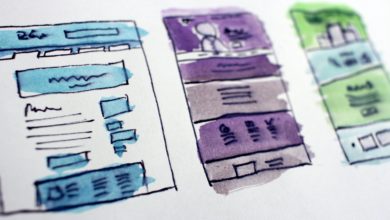The agency landscape is facing some major changes, and landing on top will mean facing up to new competition and avoiding “the commodity trap,” according to Jack Skeels, CEO of AgencyAgile, an agency training, consulting and coaching firm.
During a recent Adweek webinar, sponsored by Hightail, Skeels explained that agencies are now competing with management consultancies that can provide more strategic thinking vs. pricing by deliverables. “Agencies are great at delivering, but that sometimes means they’re just too busy to be strategic,” he said. These consultancies, which can also provide many other broad and integrated capabilities, are able to charge two to three times the prices that agencies can because of their strategic positioning. And meanwhile, he said that agencies are often pushed off to the procurement department where they are treated similarly to buying widgets or are compared to other agencies that aren’t actually a fair comparison—thus falling into the “commodity trap.”
So how can agencies remain competitive without becoming a consultancy themselves? Skeels shared five key tactics:
- Be about value – Skeels said it’s important to put in the work to gain an understanding of the organization and the synergies within it, in order to be able to provide strategic client outcomes as well as valuable thinking about the client’s customer’s experiences. He also suggests asking “the question behind the question” to understand more about the client’s needs. For example: I know you want a website, but how will that help you sell beer better?
- Be a teacher – He suggests being the source of learning and growth for clients. Helping to make clients better at what they do is something that consultancies are masters at, according to Skeels, and he adds, “You become more valuable when you help your client grow more professionally.” He even suggests potentially helping clients to build some of their own in-house capabilities, even though that might be a difficult thought to grasp for agencies. If agencies don’t help build these capabilities, he said, the consultancies will—leading to grateful clients and future business for them.
- Be an investor – This involves thinking about how to spend time, money and resources on behalf of the client in advance of being asked. “Forward investment would be saying: What do we need to be doing for our client that they haven’t thought of or asked for yet.” As an example, he said a consultancy might place an employee on a client’s site for a couple of weeks where they might become a valued presence there and given the opportunity to stay long term.
- Be about your people – This means showing the power, breadth and diversity of your organization. Skeels said that while agencies tend to narrow how many people they expose to the client, “to view you more strategically, one of the key factors is how well clients know your people.” He added, “One of the most interesting things is that agencies have the most awesome people in them and a lot of clients don’t get to meet very many of them.” He said team-to-team briefings can be “one of the most powerful factors” to connect you to the client’s sense of agency value. “When your clients think you’re more valuable, they’ll tend to buy from you more often.” One suggestion? Branding your people by highlighting them as an expert in an area. “It’s amazing. Agencies are so great at branding and marketing things, but they don’t do that with their people.”
- Be a partner – Skeels said that working together with clients to build a vision and a roadmap, as well as to develop each other, you are more likely to be perceived as an indispensable partner. He added, “Be data-oriented, lead with information, teach them how to think about their business from the metrics standpoint and be passionate about their business.”
Skeels said these strategies will help clients become more dependent on you and connect you to them on a more relational level—and it will also mean that you have more pricing power. “They’re not willing to take you out of the picture, they value you, you’re connected to the organization, and you can charge more.” He added, “It’s not a procurement decision, it’s a partnering decision.” Interested in learning how one agency has worked to become a better partner to its clients? Read our recent blog post, “Starting right with co-creativity.”





